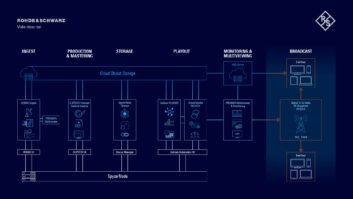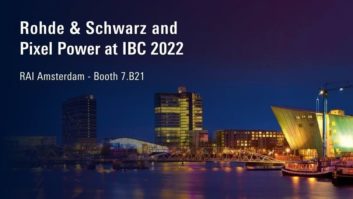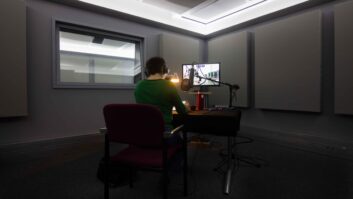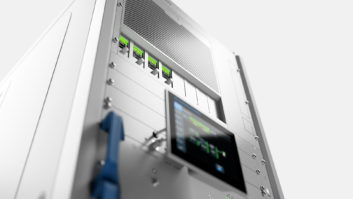Rohde & Schwarz has announced it has acquired graphics, automation, master control and playout company Pixel Power.
Financial details of the deal have not been released; CEO James Gilbert and CTO Nick Wright will remain with the company in their current positions and continue to develop Pixel Power.
Pixel Power’s exec VP global sales and marketing, Ciarán Doran tells TVBEurope the team are excited by the acquisition: “Pixel Power has been changing the course of its business over the last several years in terms of where we our focus. Yes, we’ve been a graphics and branding company for 30 years but we’ve used that knowledge specifically in the playout area in terms of focusing how broadcasters can really make an exciting change in the branding and retaining viewers and making their playout more efficient.
“We’ve introduced more software-based IP products that can be virtualised and that’s really caught the imagination of the market. That starts to paint a picture of why an organisation like Pixel Power became attractive to a company like Rohde & Schwarz.”
Doran says he views the acquisition as both positive for Pixel Power, and positive for the industry “not just from a technology perspective but from an overall perspective.”
He continues: “You have a privately-owned, engineering-led organisation like Pixel Power joining forces with a multi-billion Euro, family owned engineering-led German company. That’s not always something that happens in our industry. What is beneficial for us is that we’ve joined forces with an organisation that has the same values, the same principles in that we are here to serve the broadcast community as customers, and the people in it.”
“It shows that Rohde & Schwarz are serious about moving further into the playout arena, they’re serious about who they choose to work with, and I would go as far to say that there’s virtually no overlap in the products and people. As far as we’re concerned, there’s no change, but everything changes.”







